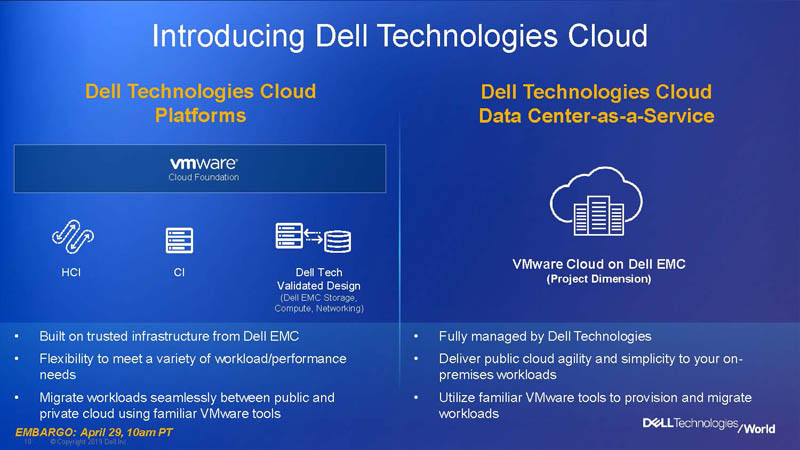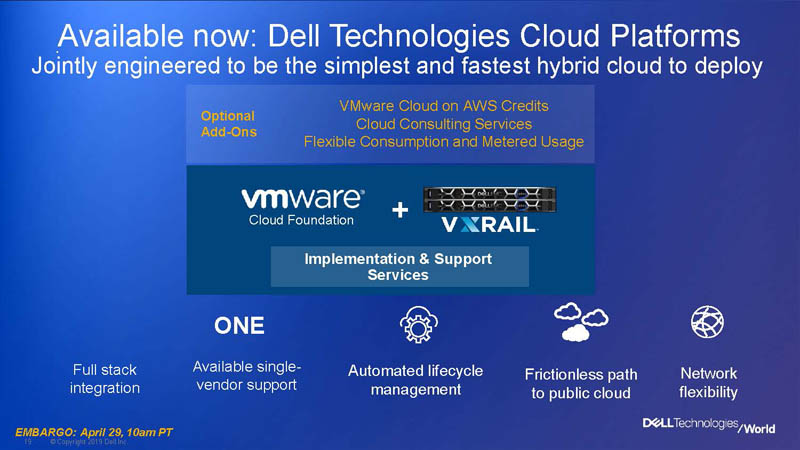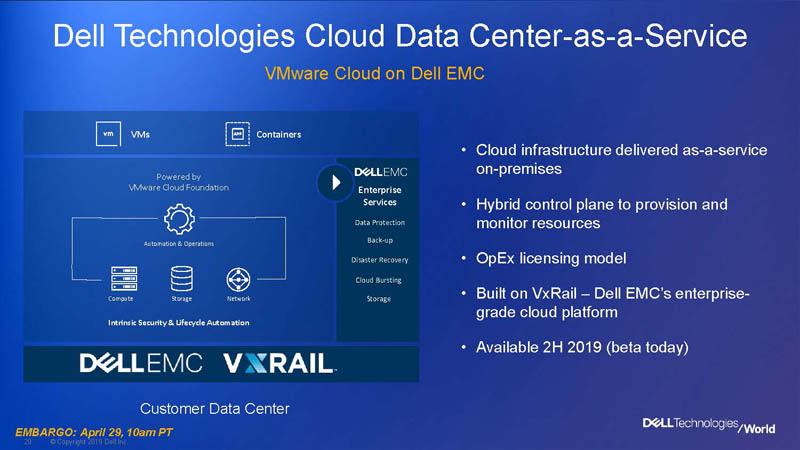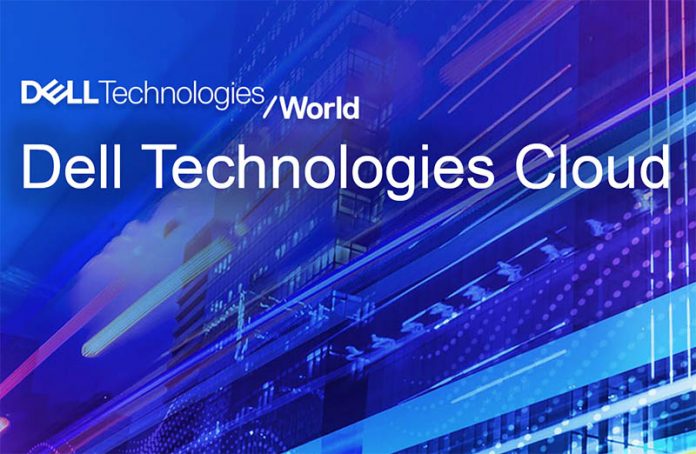Dell Technologies sees the enemy at the gate that also brings opportunity. Some of its high-margin customers that love Dell EMC and VMware for their ease of management also see cloud providers as the next step in making infrastructure easier. On a pre-briefing call, it says that its customers are not just using one cloud, but are already using more like five clouds between public and private. Dell Technologies is seizing that opportunity to launch its own cloud platforms, underpinned by VMware.
Dell Technologies Cloud
Dell EMC has the servers, storage, and networking to build a cloud infrastructure. Between the Dell EMC tools and the VMware tools, it also has end-to-end management and monitoring capabilities. Dell now has all of the components, save facilities where a customer may want their private cloud to reside.

Over the past few VMworld shows we have attended, the company has been pushing a model of using VMware for primary private cloud management as well as public cloud management. We see the Dell Technologies Cloud as an extension of this work allowing organizations to run workloads on multiple clouds managed by VMware across the stack.
In some ways, the announcement is the most obvious direction for the company. As companies like AWS, Google, and Microsoft look toward appliances that an extend their clouds on-prem, Dell Technologies needs to push its infrastructure so that its customers that already use AWS do not decide to ditch VMware, get AWS on-prem, and go all-in with a public cloud provider.

Dell Technologies is using tools in its portfolios such as VxRAIL and VMware Cloud Foundation to deliver a private cloud as a service. We would have said on-premises, however, a lot of these are likely to live in third-party data centers.

Availability will be in the second half of 2019 with a beta available today. Interestingly enough, VMworld 2019 is scheduled for the second half of 2019.
Final Words
This is a massively important announcement for Dell Technologies, not just Dell EMC or VMware. Keeping high-margin customers on VMware versus the proprietary cloud toolsets and open toolsets is key to keeping customers align with the Dell Technologies portfolio. If one moves to OpenStack, they change their cost structure versus VMware for both software and hardware. Likewise, if cloud providers start placing boxes in customer data centers, they are making the case that they should be the management toolset.
At the same time, those customers who have been loyal to PowerEdge servers, EMC storage, and VMware management have also been the ones who are willing to pay a bit more to get the ease of use and great tools. The Dell Technologies Cloud offering allows the company to leverage its extensive portfolio and deliver a solution for the multi-cloud world that its customers can adopt as soon as it is finally released.
Since I am in Las Vegas this week for Dell Technologies World, I may suggest placing bets on hearing more about this offering in 2H 2019, or around VMworld 2019.




